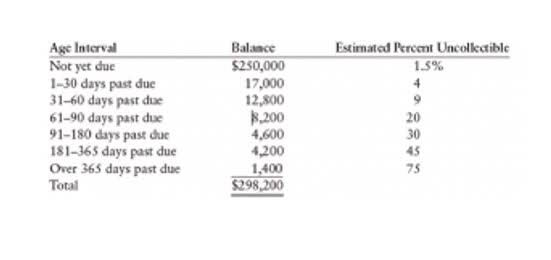
This will ensure you are compensated fairly while positioning your business for sustainable growth. Reasonable compensation is not the same as the net income of the business. Furthermore, reasonable compensation is never an arbitrary percentage of the net income of the business. In addition to the tax withheld from the employee’s salary, the business also pays its share of Social Security and Medicare s corp payroll taxes to the IRS. The shareholders must be U.S. citizens or legal residents of the U.S. Shareholders of an S corp must be individuals, not corporations, partnerships or other entities. Jean Murray is an experienced business writer and teacher who has been writing for The Balance on U.S. business law and taxes since 2008.
S corporations pay payroll taxes and pay income tax

This shows that your compensation decisions were informed by objective data, not personal preference. Owners should regularly review these factors to help ensure they can defend their pay levels if challenged. If you work full-time in the business, then your salary would reflect that. However, if you are less involved and only work a few hours a week in the business, you may be able to justify a lower salary.

Utilizing Compensation Formulas
It is essential to have a system in place to track employee wages and the corresponding taxes withheld. Employee wages should be competitive and in line with the services provided to the corporation. Using software or working with a payroll provider can help simplify this process and ensure accuracy. When it comes to determining compensation for S-Corp owners, one of the critical considerations is the reasonable salary. This is the amount of compensation that the owner receives for their services as an employee of the company.
Training and Experience

S corporation owners are in a unique situation when it comes to federal income taxes. To help you understand it QuickBooks all, let’s look at why S corporations are different from corporations, and then how to avoid tax issues for S corp owners. To maintain this favorable tax status, S Corps must distribute reasonable salaries to shareholder-employees. This ensures that the corporation’s income is reported on individual tax returns and avoids imposing taxes at both the corporate and individual shareholder levels.
- For this reason, many think it’s reasonable for an S Corporation to pay this amount in shareholder wages.
- Government Accountability Office (GAO) report to the Senate Committee on Finance17 echoed the concerns expressed in the TIGTA findings.
- Determining a “reasonable salary” is a key requirement for owners of S corporations looking to stay compliant with IRS rules and avoid costly penalties.
- A reasonable salary is generally based on the amount you would pay someone else for the same services, not profits or losses made by the company.
- These documents help paint a clear picture of your business’s financial health and guide you in making informed decisions about your compensation.
- By following the outlined strategies and best practices, you can confidently navigate the complexities of salary determination.
- Following the 50/50 “rule” or 60/40 “rule” for reasonable compensation may seem like a viable option, but it is not the most robust way of protecting yourself from IRS audits.
- Furthermore, we do not endorse any third-party companies, products, or services described here and cannot take responsibility of how the information is used.
- Let’s say one shareholder works in the business full-time as a receptionist, whereas the other shareholder works as the company president.
- Every year, the IRS goes through the corporation tax returns and if they see that the officers had small salaries, they are more likely to audit these companies to get the money they believe belongs to them.
- A full-time commitment, often exceeding a standard 40-hour work week, warrants a higher level of compensation than a part-time role.
Just converted from sole proprietor to s corp. but am having trouble determining reasonable salary. I have been doing this 15 years and my salary has ranged from 20K to 50K. Before we jump into the specifics of reasonable salary for US expats, let’s go over how the IRS taxes S corporation owners.
- Evaluating the financial performance of your S Corp is a crucial step in determining your salary.
- The court also ruled that the additional compensation should be applied ratably throughout each of the two years.
- 28 The court agreed with the IRS expert’s computation of reasonable compensation of $69,584, $79,823, and $79,711 in 1997, 1998, and 1999, respectively.
- We also saw no indication that she considered G&A’s operating expenses or whether she even asked herself if she had all the information necessary to make her determination.
- The basic idea is trying to determine what a non-shareholder employee would be paid for comparable work.
Determining a “reasonable salary” is a key requirement for owners of S corporations looking to stay compliant with IRS rules and avoid costly penalties. But mastering the complex guidelines on S corp owner compensation can be challenging, as tax agencies provide limited formal guidance. S corporation shareholder-employees and their tax advisers often find themselves with differing goals when setting the shareholder-employee’s compensation. Typically, the shareholder-employee prefers to minimize compensation in favor of distributions to reduce payroll taxes. Tax advisers, however, are faced with a body of governing authority providing that the shareholder-employee cannot avoid the imposition of payroll taxes by forgoing reasonable compensation. To say that there are tremendous nuances to navigate to define accurate compensation for S Corp owners might be an understatement.


Many owners, especially those deeply invested in their businesses, may struggle with self-assessment and undervalue their time and effort. This can have long-term financial implications, particularly regarding retirement planning and financial stability. Furthermore, the IRS has established a few methods for assessing reasonable compensation, such as the “Comparable Earnings” method.
What guidelines should be followed for setting an S Corp owner’s salary?
And again, that’s really only gonna be feasible and make sense if you don’t have access to this other data. As much as that seems easier to just say, okay, well I’m the CEO of my business, I’m gonna go look and see Medical Billing Process what I would pay a CEO. You can go look at open positions and find what they would pay specifically in your area. Some that are more higher level management type duties and some that are a little bit more admin type duties. I have multiple different roles that completely range in the things that I’m doing in my business and my day can have all different types of roles that I am doing. And so they would say that salary is not reasonable even though you split it 50-50.












